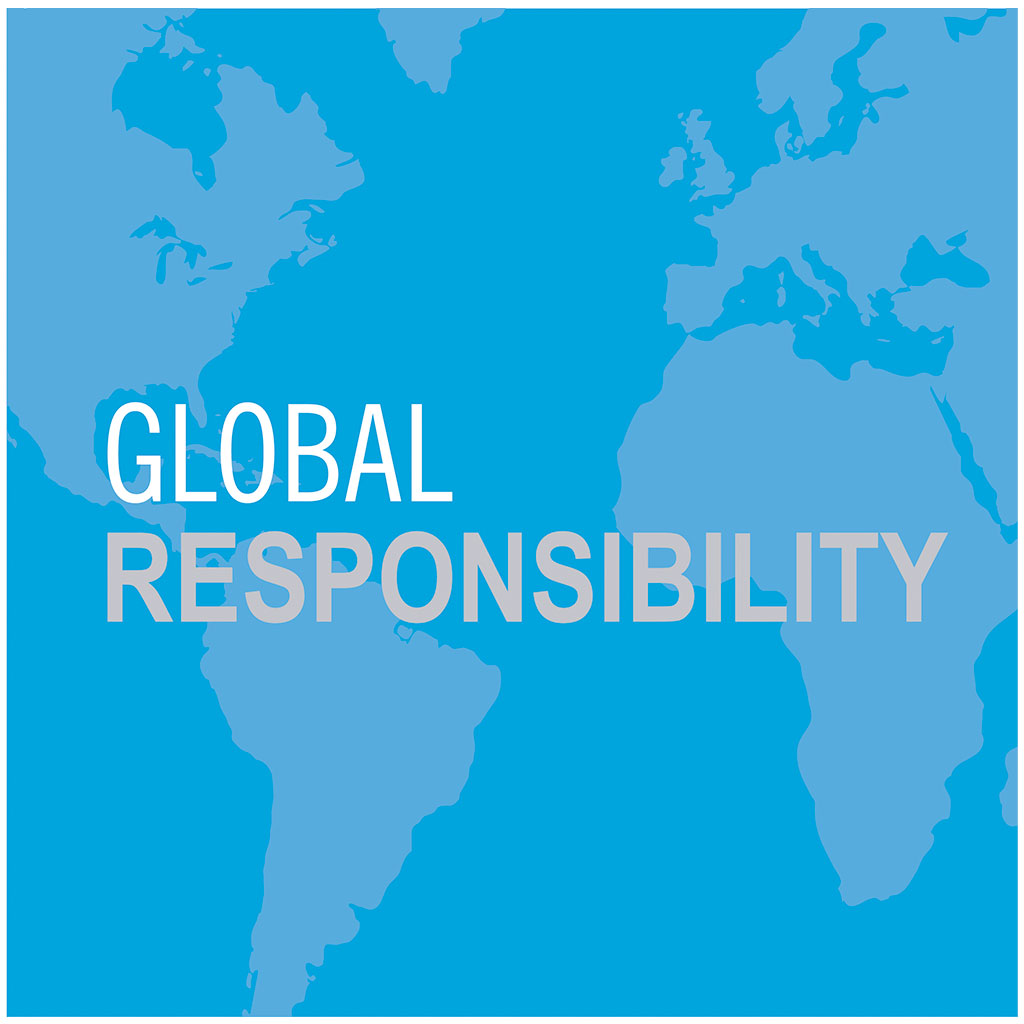INFORMATION
WE ARE GLOBAL RESPONSIBILITY

Leer más
dignity of the human person and their responsible and free projection into the communities where political, economic and social life takes place.
It is about an alternative coming from the best traditions of the West and enriched with relevant additions from contemporary thought. From classic authors such as Aristotle, Thomas Aquinas, Edmund Burke and Hannah Arendt, to contemporary figures such as Alejandro Llano, Alasdair MacIntyre, Charles Taylor and Amitai Etzioni, the proposals of humanist political thought enrich ideas, options, points of view, and ways to tackle questions of the human person and their dignity, liberty, family, equity and justice, migration, work, the market, the media, the environment, and political participation.
From a humanist perspective, to think and act in today’s society implies reckoning the proposals of several modern thinkers on political systems with the ideas that prevailed in the twentieth century, and projecting these to our days. To Karl Popper or Isaiah Berlin’s criticisms regarding totalitarian and authoritarian ideologies’ threats to liberty, we can propose as a mirror those of Giovanni Sartori, Harold Bloom or Italo Calvino opposing the trivialization of the social, the empire of consumerism, the decline of the humanities, and the poverty of the intellect as educated by the media.
The person as the centerpiece of politics within the framework of a state guarantor of liberty; the person as the centerpiece of economics within the framework of a market-generated prosperity; the person as the centerpiece of a culture that promotes information, communication, formation and education as tools of a life full, free, responsible and transcendent: thus we can describe the humanist proposal of Global Responsibility Global Solidarity that we wish to promote across the world.
Our activity consists of the international exchange of thought, experiences and resources, from a humanistic perspective, by:
Online publications of articles, essays, books and other means of information-sharing.
The fostering of academics and intellectuals at an international level.
Development of encounters among actual and future leaders of thought and their institutions on a global scale.
Organization of activities, projects and permanent programs in political, economic, social and cultural realms, especially among politicians, businessmen, academics, communicators and community leaders, thus converting ideas into government programs, public initiatives and community projects through cultural management.
OUR GOALS

Leer más
the dignity of the human person and the common good, doing so by facilitating the international exchange of scholarly and academic thought, information on best practices, and resources through:
• Online publication of articles, program guides,
educational curricula, and discussion forums.
• Provision of scholarships for international travel for public service and social justice purposes.
• Financing of periodic international educational
conferences and courses around the globe.
• Organization of activities and projects that promote knowledge of the value of global adherence to the social principles of solidarity, subsidiarity, the dignity of the human person and the common good.
OUR VISION

Leer más
phenomenon whose world penetration makes it practically unstoppable. Nevertheless, it is possible to identify promising areas of opportunity, as usually happens in each human communication phenomenon. The central issue is the humanist character we can infuse into a phenomenon of technology, to directly touch the media and the political, economic and social structures of the whole world.
This necessarily imposes a global task, and Global Responsibility Global Solidarity offers a forum for international thought exchange to provide a humanist sensibility to the globalizing macro trends of our days. From this perspective there is much to say. Therefore, we focus on initiating and supporting the exchange of thought leaders around the world, to put forward into the international community their knowledge, experiences and achievements.
How is international order built? What are the dynamics, sources of legitimacy, triumphs, failures, and current alternatives? New protagonists climb the world stage, such as China, India, Russia, Mexico, Brazil, and South Africa. What are the consequences of the rise of major new powers within the global environment? In the past, seismic changes to international dynamics were associated with great wars or great financial crisis, but in our times few doubt that aside from these social processes we must consider the mentalities, ethical foundations of society, values and virtues which inspire and conduct social transformations.
We believe the best way to reorder and rebuild politics, economics and society in a coordinated way implies a cultural task beginning with persons and their communities. It is not only a matter of power projection; it is mainly a matter of ideas. (JAMES 2011).
We must question the politics-economics-media conglomerate, which actually rules most countries in the world. The technological system consists of bureaucratic elites dominating the state, the market and the media with a mechanical, pragmatic and functionalist mentality, and inhibiting the leadership roles of persons, their capability of political participation, and the relevance of their community initiatives (LLANO 2005). This is about placing the state, the market and the media at the service of the person as realms for social and community development.
In this “Age of Anxiety” (RACHMAN, 2010) we face a complex scene of problems that can only be addressed from a global perspective: terrorism, war, genocide, starvation, nuclear proliferation, pollution, poverty, unemployment, pandemics, energy crisis, organized crime, failed states, illegal immigration. We cannot simply understand these phenomena through observation, we need to think about them, their internal logic, and understand they are related to the same human nature, as well as research the valid alternatives to overcome them. In this sense the global crisis has brought us back to basics. (JAMES 2011).
References
HAROLD, JAMES. International order after the financial crisis. International Affairs, 87: 525–537. 2011.
LLANO, ALEJANDRO. Humanismo Cívico. Ariel. Barcelona, Spain, 2005.
RACHMAN, GIDEON. Zero-Sum World, Politics, Power and Prosperity after the Crash, Atlantic Books, London, 2010.
THE CHALLENGE

Leer más
inability to attend to the necessities of common people. Crime disturbs and unsettles rich and poor countries alike. Terrorism threatens to unleash apocalyptic events capable of destroying contemporary civilization. Shreds of ideology coexist anarchically, depositing the magic key for solving the problems of our epoch in the hatred of classes or religions, individual selfishness, xenophobia, populism or authoritarianism. Natural resources are devastated, families are disintegrated, media responds to political interests and becomes a means for propaganda and social control. Greed and irresponsibility settle themselves at the top of large business, while a technocratic elite reserves for itself the right to conduct countries and regions with materialist and utilitarian criteria blind to the complexity of the needs, rights and claims derived from human nature.
Our challenge is to abate chaos. Our challenge is to offer the alternative of liberty, prosperity and justice. Our challenge is to reflect on human nature and the purpose of our lives. Our challenge is to promote the development of communities, countries, regions and the whole world, emanating from the fulfillment of each person and family. Our challenge is to make a gigantic change in the mentality of modern society, leading individuals to modifications deep down inside themselves, in their minds and hearts, which will change political, economic and social structures. These changes will foster liberty and responsibility, justice and fairness, education and formation, sciences and humanities, solidarity and subsidiarity, material prosperity and spiritual growth, public and national security, cultural identity and global exchange. It is necessary to globalize mercy, justice and peace.
STRATEGY

We promote the permanent creation and exchange of transcendent humanist thought, such as
Leer más
civic humanism, and of actual and potential leaders coming from academic, government, corporate, cultural and educational backgrounds to foster a change in mentalities leading to structural transformations and responsible global solutions to the desires, necessities, and legitimate aspirations of mankind.
We will be part of the decision makers in the cultural sphere who will determine the way of world events in this generation.
Programs involved in this strategy:
CREATION OF THOUGHT ABOUT THE GLOBAL RESPONSIBILITY GLOBAL SOLIDARITY PROGRAM.
TALENT TRANSFER FOR THE GLOBAL RESPONSIBILITY GLOBAL SOLIDARITY PROGRAM.
CULTURE MANAGEMENT FOR THE GLOBAL RESPONSIBILITY GLOBAL SOLIDARITY PROGRAM.
Social & Ethical questions arising from IoT consequences
Innovation for Inclusive Growth.
This report looks at a variety of inclusive
Leer más
innovation initiatives and innovative products aimed at improving the welfare of lower-income and excluded groups, notably in terms of essential public services (education, infrastructure and health). It discusses the policy trade-offs between traditional innovation policies and a more inclusive innovation approach, and provides recommendations for aligning current policies. It also deals with the impacts of innovation and innovation policies on industrial and territorial inclusiveness, describing how information and communication technology (ICT) and technology diffusion may influence smaller firms’ chances of succeeding with their innovations.







